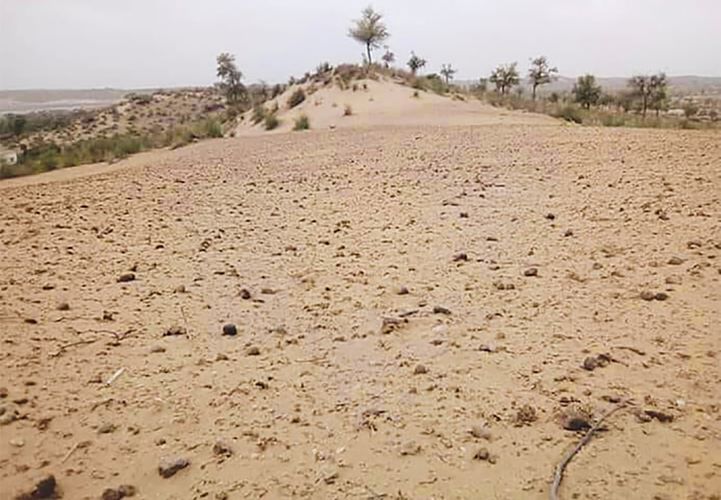
With a substantial portion of Sindh grappling with rainfall deficits and exhaustion of water resources, it is imperative to implement effective strategies to manage and alleviate the impact of drought
Zaheer Udin Babar Junejo
Historically, the provinces of Balochistan and Sindh have exhibited a higher susceptibility to drought compared to Punjab, Khyber Pakhtunkhwa, and Gilgit Baltistan. According to a report by the Government of Pakistan, these regions could face two to three droughts per decade. Rainfall patterns across Pakistan indicate significant drought risks every 4 to 5 years. Notably, past records highlight major droughts in the distant past, and more recent arid periods remain vivid in collective memory. Sindh encountered severe drought conditions in the years 1871, 1881, 1899, 1931, 1942, 1999, 2003, 2020, and 2021. The 1999 drought persisted until 2002.
Traditionally, areas bordering Sindh that rely on rain-fed agriculture begin signaling drought from August 15th. Given prevailing patterns and projections, it is prudent for authorities to declare a drought at this juncture. The likelihood of any substantial rainfall during August is minimal. Over 75% of Sindh’s areas, particularly District Tharparkar and the desert regions of Sanghar, Dadu, and Khairpur, have experienced insufficient rainfall so far. District Tharparkar’s coverage surpasses 80% with a rainfall deficit of 250+ mm. A further 250+ mm of rainfall is required in September, the final month of the monsoon season, to attain its seasonal average. The current circumstances demand a proactive approach from authorities and communities alike. With a substantial portion of Sindh grappling with rainfall deficits and the impending exhaustion of water resources, it becomes imperative to implement effective strategies to manage and alleviate the impact of drought. Timely action in response to the looming drought threat is of paramount importance.
The historical susceptibility of Balochistan and Sindh to drought, coupled with the current alarming conditions, necessitates a comprehensive and coordinated response.
Local farmers and agricultural stakeholders should be encouraged to adopt water-efficient practices and explore drought-resistant crop varieties. Collaborative efforts between governmental agencies, non-governmental organizations, and community leaders can facilitate the dissemination of information and the implementation of sustainable solutions. Public Private Partnerships for the development of alternative water sources, such as harvesting and efficient irrigation techniques, can significantly mitigate the effects of water scarcity. Investing in water infrastructure and storage facilities can enhance the region’s resilience to future droughts.
Public awareness campaigns can play a pivotal role in educating citizens about water conservation, responsible water usage, and the importance of planning for drought conditions. Promoting water-saving habits at the individual and household levels can contribute to a collective effort in tackling this pressing issue. District and Local Governments should actively collaborate with civil society organizations to establish effective early warning systems and collaboratively devise strategies for mitigating drought. By pooling resources, these efforts should aim to provide relief for citizens who are already grappling with economic challenges. The establishment of joint early warning systems that monitor meteorological indicators and water levels can provide timely alerts to communities and authorities, enabling them to take pre-emptive actions and mobilize resources efficiently.
The historical susceptibility of Balochistan and Sindh to drought, coupled with the current alarming conditions, necessitates a comprehensive and coordinated response. By fostering collaboration, implementing sustainable practices, and raising public awareness, the adverse effects of recurring droughts can be mitigated, enhancing the region’s ability to endure and recover from such challenges.
____________
 Zaheer Udin Babar Junejo, based in Hyderabad, is a specialist in Institutional Development, MEAL (Monitoring, Evaluation, Accountability, and Learning), and Fundraising.
Zaheer Udin Babar Junejo, based in Hyderabad, is a specialist in Institutional Development, MEAL (Monitoring, Evaluation, Accountability, and Learning), and Fundraising.